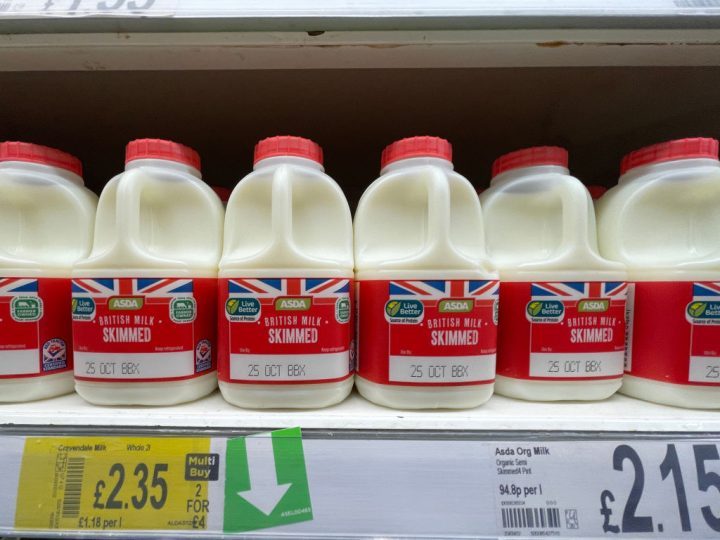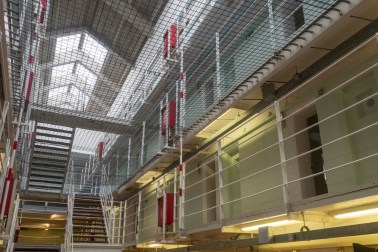Not so long ago, some were arguing that cheap food was a problem in Britain. We’re unlikely to hear such complaints now that food inflation remained at 17.3 per cent in June, not far off its peak of 19.2 percent in March. Is this a blip? An economist from PwC thinks not and has declared that the ‘era of cheap food has probably come to an end in the UK’. If so, this will have several serious implications.
Just four years ago, a commission set up in 2019 by the left-leaning think tank the RSA claimed that cheap and unhealthy food was causing a public health crisis and contributing to environmental destruction. ‘Our own health and the health of the land are inextricably intertwined,’ it added, high-mindedly, but ‘in the last 70 years this relationship has been broken’.
Cheap food was never a problem – to claim that was the ultimate first world problem
Cheap food, we are told, was bringing misery on farm animals, ruining the soil through over-intensive grazing and everything else. If only we could go back to a system of pre-industrial agriculture all would be well.
Funny enough, however, now that cheap food has disappeared from our shelves, no-one seems to be celebrating. Rather we have a cost of living crisis that is leading to people going hungry. The crisis has been caused by Brexit, climate change, Tory mismanagement of the economy or whatever else you want to blame it on.
No, cheap food was never a problem – to claim that was the ultimate first world problem. Expensive food, on the other hand, very much is a problem. Go back to pre-industrial agriculture and we will go back to pre-industrial social conditions, with a large slice of the population unable to feed itself properly.
The cheapness of food is a sign of human progress. In 2018, a report by Euromonitor estimated that Britons on average spent just 8 per cent of their household expenditure on feeding themselves, lower than any countries other than the US and Singapore. Far from being a symptom of a national sickness it was a tribute to the efficiency of our supply chain – from farms to supermarkets, as well as importers.
Cheap food is also a product of free trade. True, there were always farmers being driven out of business by low prices – that’s how any market system works – but overall, low prices were of great benefit to the country, helping to feed people who in an earlier age would have been on the breadline.
I know people will object to this and say what about all the people using food banks? But the problem in Britain has never been food prices; rather it is the price of housing which has stretched household budgets. Our housing policy is the exact opposite of our food policy, creating shortage and excessive prices.
I wouldn’t assume that the era of cheap food is really over, though. High food inflation is not solely a British phenomenon – it has been experienced all over the world as the economy recovers from a pandemic which threw a spanner in the global supply chain.
As ever, high prices will encourage greater production. And no, climate change isn’t destroying yields – they have risen strongly over the past decade for almost every crop tracked by the UN Food and Agriculture Organisation.
Food prices will very likely be falling again soon. But for the moment high food inflation is a warning for all middle-class, green-minded folk who were inclined to complain about food being too cheap: be careful what you wish for.







Comments